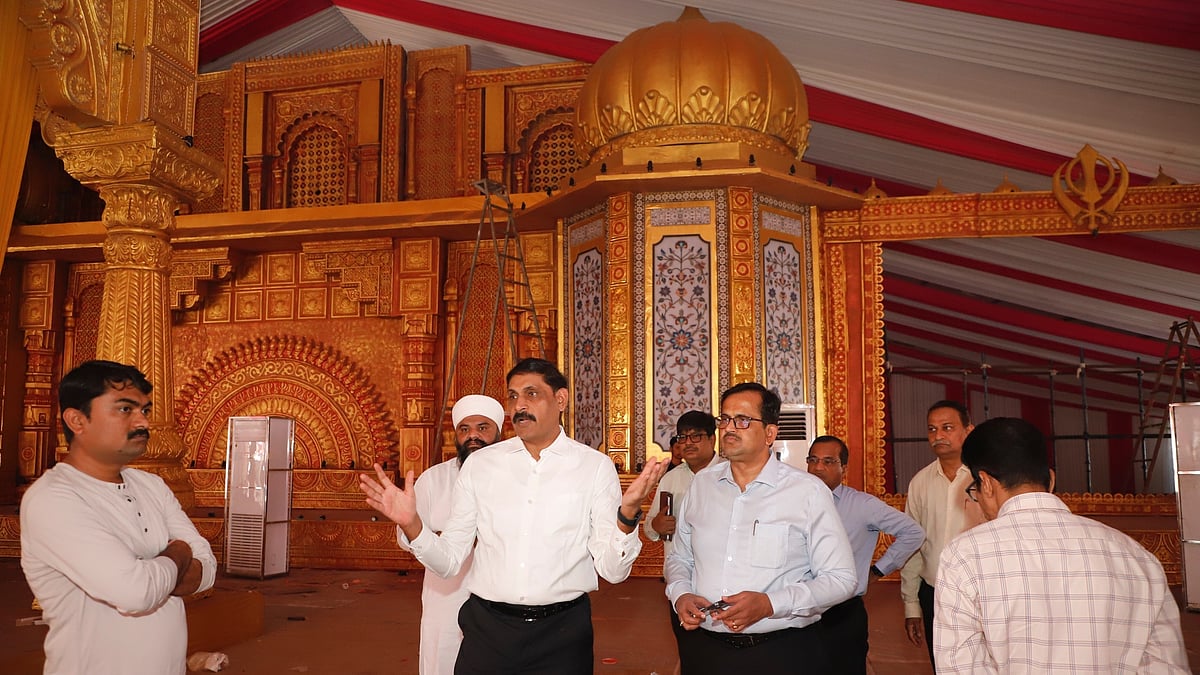In our society, discussions often revolve around sexual orientation, but even then, asexuality remains largely misunderstood and overlooked. First and foremost, it is essential to clearly understand asexuality, a sexual orientation where a person experiences little to no sexual attraction towards others.
“Asexual individuals may still form emotional connections and experience romantic relationships. Still, they typically do not undergo the same desire for sexual intimacy as people who identify as heterosexual, homosexual, or bisexual,” says Shivanya Yogmayaa, relationship coach and holistic therapist based out of Bengaluru. She reiterates that it is important to remember that everyone’s experiences with their sexuality can be unique, and asexuality is just one of the many diverse ways people can identify themselves.
Decoding the code
Certified sexuality and intimacy coach Pallavi Barnwal states that asexuals experience zero to minimum sexual attraction. "They are mainly focused on romantic, aesthetic, spiritual, or non-sexual platonic partnership rather than sexual intimacy," she explains, adding that there are other categories of asexuality.
Barnwal says, "I am a demisexual and have been repeatedly negated by men who wanted to become sexually intimate at the drop of a hat and failed to understand my slow behaviour or dismissed my resistance as old-fashioned. Demisexual people like me don’t feel sexual attraction unless they form a deep emotional bond with a person."
She clarifies that a few aromantic people experience little to no romantic attraction to another person. "Not all asexual people are aromantic; some asexuals like romance. Although romance often involves hugging, kissing, cuddling, and physical and emotional intimacy, the things that we call as “couple stuff”, some asexual people may indulge in hugging and kissing while not engaging in other intimate forms of physical intimacy. Some asexuals may experience emotional intimacy as part of falling in or being in love."
Need for conversation
Numerous studies have contributed to our understanding of asexuality. Research has revealed that asexuality is a valid and distinct orientation, with an estimated 1% of the population identifying asexual.
Studies have explored aspects such as the spectrum of asexuality, the experiences of asexual individuals, and the relationship between asexuality and mental health. The findings emphasise the importance of recognising asexuality as a legitimate identity and the need for inclusivity.
Highlighting the importance of a conversation around asexuality, Yogmayaa says, "It fosters understanding, validation, and inclusivity. Discussing asexuality helps combat the lack of visibility and misconceptions surrounding this sexual orientation. It provides a platform for asexual individuals to share their experiences, find support, and validate their identities. Moreover, these conversations educate society, challenging traditional notions of sexuality and promoting empathy and acceptance."
Minority report
More so, asexuality is a minority sexual orientation and thus risks being invisible, so a conversation is the need of the hour. "I had an asexual client whose parents wanted to get her married; she also wanted a partner but was anxious that any ‘normal’ guy wanted sex. What she meant was a common guy means the majority, but in our society, the term ‘majority’ and ‘normal’ are intermixed, which is not true. This girl, like many, many asexuals, had difficulty explaining her sexual status to her parents and potential grooms," explains Barnwal. She recounts that asexual people are as common as gingers, yet lack of discussion creates confusion and a lack of acceptability in people for asexuals.
Asexual individuals may experience vulnerabilities such as misunderstanding and invalidation of their sexual orientation, a lack of visibility and representation, pressure to conform to societal norms, stigmatization and discrimination, and the compounding effects of intersecting identities. "These vulnerabilities can lead to feelings of isolation, self-doubt, discomfort, and marginalization, impacting their emotional well-being and sense of belonging. It is important to address these vulnerabilities through education, awareness, and creating inclusive spaces to support asexual individuals in their journey of self-acceptance and finding a sense of community," explains Yogmayaa.
Community Support
Medical and psychological experts have recognised asexuality as a valid sexual orientation. The American Psychological Association (APA) acknowledges asexuality and discourages pathologising it. Professionals emphasise the importance of providing affirmative care that respects an individual’s asexual identity and supports their mental and emotional well-being.
Creating a culture of open conversation around asexuality is essential for promoting inclusivity and reducing stigma. By talking about asexuality, we can challenge the assumption that sexual attraction is a universal experience. Open discussions foster empathy, encourage education, and validate the experiences of asexual individuals. It allows them to feel seen, understood, and accepted, promoting mental health and overall well-being.
"Creating a comprehensive support system requires a combination of education, awareness, community building, and advocacy. By implementing these measures, we can cultivate safe spaces where asexual individuals feel accepted, validated, and supported in their journey of self-discovery and self-acceptance," says Yogmayaa.
Asexuality support groups and communities are vital in providing understanding, validation, and a sense of belonging for asexual individuals. These spaces offer a platform for sharing experiences, discussing challenges, and building supportive networks. Organisations like the Asexual Visibility and Education Network (AVEN) have raised awareness and fostered a sense of community among asexual individuals worldwide. A conversation will help people connect to resources, support networks, and communities, facilitating personal growth and well-being. "Engaging in conversations about asexuality also highlights the intersectionality of identities, promoting inclusivity and social justice. Open dialogue cultivates a society that recognises and respects diverse sexual orientations, contributing to a more inclusive and harmonious world," emphasises Yogmayaa.
Advocacy and Education
The significance of discussing asexuality cannot be overstated. By understanding asexuality as a legitimate sexual orientation and challenging stereotypes and myths, we pave the way for acceptance and support. "Promoting asexuality awareness and education is crucial for building an inclusive society. This involves integrating asexuality into sexual education curricula, raising visibility in media representation, and encouraging research funding. By amplifying asexual voices, we can work towards dismantling misconceptions and fostering a more inclusive world," states Yogmayaa.
Barnwal recounts how she had a young female follower who was an asexual and was in a relationship with a high-libido person. "The boy kept telling her that once she had sex, she would start to enjoy it. See, asexual people can still have sex and drive physical pleasure from sex, but emotionally, it would be the same as washing dishes. This often creates an inner demon-like situation for them that ‘is there something wrong with me’ which is sad because asexuality is a legit and valid orientation."
Let us foster inclusivity and empathy, creating a world where asexual individuals are seen, heard and celebrated.









